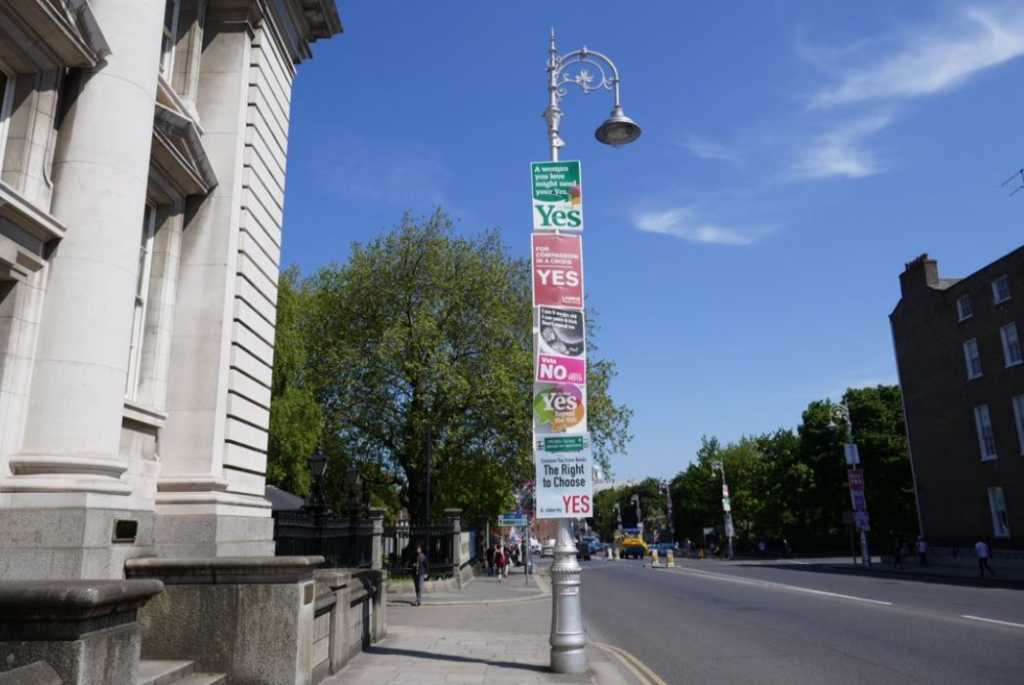When you look at the monumental change a repealing of the Eighth Amendment would inflict upon the Irish constitution, one has to wonder: what do people think about the “personhood” of the unborn?
As it stands, Ireland’s constitution protects both mother and child in an equal sense – both are endowed with a fundamental human right to life. But if the amendment is repealed, this will change drastically, as abortion begins to become fair game for lawmakers, and the rights of the unborn are stripped away.
‘You Have to Be Brave to Say You’re Voting No’: Ireland Poised to Legalize Abortion
I spoke to pro-life campaign spokeswoman Maeve O Hanlon about this vital question of personhood and asked her why this innate right to life, that has been granted to Ireland’s unborn, has not featured in debates leading up to today’s vote. “There has been very few questions about personhood. When they have come up, they’ve said it’s ridiculous to equate the life of a fetus to the life of a fully grown woman,” O Hanlon said. “The Eighth Amendment is progressive.”
O Hanlon explained how this crucial constitutional amendment allows a “balancing act” of the most indelible of human rights.
“If you repeal the Amendment, you’re saying that a baby’s right to life is less important than a woman’s right to convenience,” O Hanlon explained.
Speaking on the right for women to have autonomy over her own bodily convenience, O Hanlon said that while these are “all valid concerns, when you balance rights, the right to life is stronger.”
“A baby’s right to life is above the right to do whatever you want to do with your life as a fully grown woman,” she added.
“There hasn’t been a discussion on human rights.”
When I pushed O Hanlon on why this avenue of discussion had not been thoroughly journeyed in the several debates prior to today, she responded bluntly:
“Because the media are in favor of abortion.”
Maeve then elaborated on the position of the “Yes” campaigners on this crucial issue:
“They say it’s ‘my body my choice,’ not recognizing that there is a second body there. If they say there is, they say it’s like a parasite,” she explained.
Treating unborn babies like parasites is not only heartless, but scientifically dubious, not to mention highly confusing. If the “Yes” side is so convinced that, despite the scientific evidence, unborn babies do not qualify as “people,” why bother with term limits on abortion? The new legislation in Ireland would allow unlimited abortion up to 12 weeks, but the question remains: why do those in favor of unrestricted termination seek to limit abortion to this time frame? If personhood does not come into the equation, why is there a gestational cut-off? This is a question I have yet to find an answer to.
“Yes” campaigner Jack Sheehan, in Dublin, tried to explain the position.
“I think it’s important to recognize that the unborn didn’t have rights before 1983,” he told me, referring to the Eighth Amendment of the Constitution Act 1983, which endowed both mother and child with an equal right to life. “This was not something that was in the constitution from the start. It was introduced by a group of radicals and extremists who were determined to strip rights away from women.”
Now, Sheehan said, it is time for women to have their rights “restored.”
“What we’re saying is that this is restoring rights to the woman that was taken away in 83′ and bringing us into line with some of the conservative governments in Europe,” he explained.
“Abortions are happening,” Sheehan added. “It’s restoring a situation that everyone knows to be the case.” The campaigner admitted that his side would “like there to be fewer abortions,” but that “we want the woman to have the choice.”
If after today the unborn are no longer classed as “people” under the law, or indeed within popular opinion, why is it a bad thing if abortion rates spike?
While the arguments may be incoherent at times, one thing is clear: the number of babies terminated will absolutely skyrocket if the Eighth Amendment is repealed.



